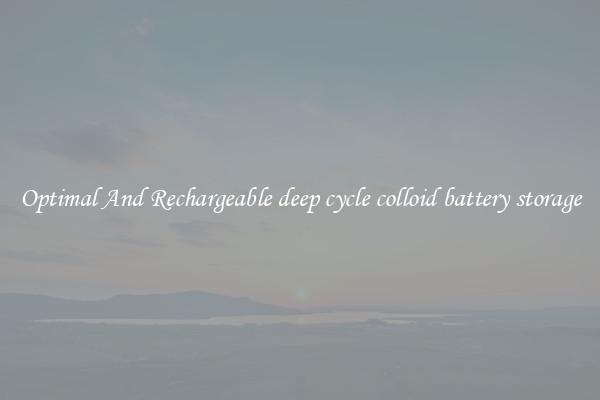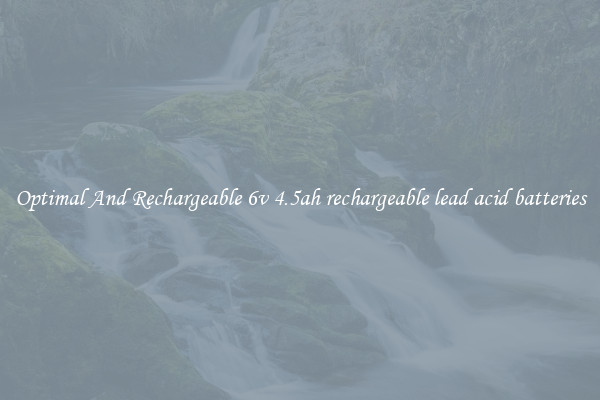Optimal And Rechargeable deep cycle colloid battery storage
Optimal and Rechargeable Deep Cycle Colloid Battery Storage

When it comes to storing energy for off-grid systems or backup power, deep cycle batteries are an essential component. These batteries are designed to provide a steady and reliable source of power over an extended period of time, making them ideal for applications such as solar energy storage, RVs, boats, and more. Among the various types of deep cycle batteries available, colloid batteries are a popular choice due to their superior performance and longevity.
Colloid batteries, also known as gel batteries, are a type of deep cycle battery that uses a gel electrolyte instead of the traditional liquid acid found in flooded lead-acid batteries. This gel electrolyte is housed in a sealed container, making colloid batteries maintenance-free and resistant to leakage. In addition, the gel electrolyte allows for deeper discharges without affecting the battery's overall lifespan, making them ideal for frequent cycling applications.
One of the key advantages of colloid batteries is their ability to maintain a stable voltage output throughout the discharge cycle. This ensures consistent and reliable power output, making them well-suited for applications that require a steady power supply, such as off-grid systems and backup power sources. In addition, colloid batteries can be discharged to a lower depth of discharge compared to other types of deep cycle batteries without compromising their longevity, making them a cost-effective and efficient energy storage solution.
To ensure optimal performance and longevity, proper storage and maintenance of colloid batteries are essential. When storing colloid batteries, it is important to keep them in a cool, dry place away from direct sunlight and extreme temperatures. It is also important to periodically check the battery's voltage and electrolyte levels to ensure they are within the recommended range. Overcharging or discharging colloid batteries beyond their specified limits can lead to irreversible damage and reduce their lifespan.
Recharging colloid batteries is a simple process that can be done using a compatible charger designed for deep cycle batteries. It is important to follow the manufacturer's guidelines when recharging colloid batteries to prevent overcharging or undercharging, which can affect their performance and longevity. The use of a quality charger with built-in safety features, such as overcharge protection and temperature sensing, can help prolong the life of colloid batteries and ensure they remain in optimal condition.
In conclusion, colloid batteries are an optimal and rechargeable deep cycle battery storage solution for a wide range of applications. With their superior performance, longevity, and reliability, colloid batteries are a cost-effective and efficient energy storage option for off-grid systems, backup power, and more. By following proper storage and maintenance practices, colloid batteries can provide a steady and reliable power supply for years to come.

View details

View details

View details

View details








